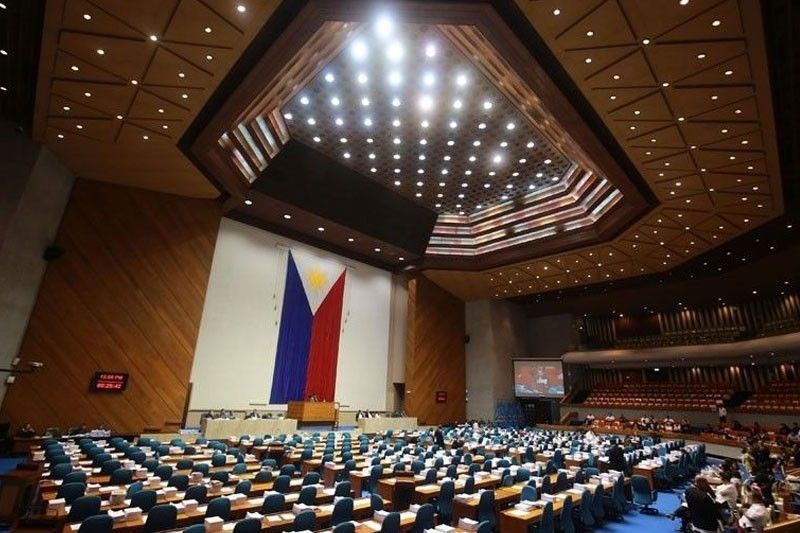Senate to prioritize LEDAC bills, not Cha-cha

MANILA, Philippines — The Senate would rather prioritize bills listed in the Legislative-Executive Development Advisory Council (LEDAC) than rush the passage of the proposed measure to amend the 1987 Constitution – at least based on the chamber’s agenda and schedule for the last week of session.
Sen. Sonny Angara’s Senate subcommittee on constitutional amendments has not set any hearing on Resolution of Both Houses No. 6 (RBH6) until the last session day on March 20. Congress’ calendared recess is set from March 23 to April 28.
The House of Representatives approved on second reading RBH7 last week.
Given the schedule, the Senate would not be able to tackle and pass RBH6 anytime soon and would have to wait for the resumption of session on April 29.
“Yes, because this week is for LEDAC bills like (government) procurement reform laws and others,” Angara told The STAR in a Viber message when asked if the Senate would tackle RBH6 after the Lenten break.
In August last year, senators first floated the idea of exempting the Armed Forces of the Philippines (AFP) from the Government Procurement Reform Act so it could acquire equipment faster amid growing Chinese provocations in the West Philippine Sea.
Senate President Juan Miguel Zubiri moved for a review of the AFP modernization program at a public hearing of the Senate committee of national defense and security on the proposed National Defense Act and Self-Reliance Defense Posture Revitalization presided over by Sen. Jinggoy Estrada.
Even if the Senate is apparently in no rush to approve a Charter change measure anytime soon, Speaker Martin Romualdez and other House leaders said they would still prefer to work with the senators on the matter for the benefit of the country.
“It is important for us to work with the Senate on this, so that we can limit the possible constitutional challenge RBH6 and RBH7 will face,” Deputy Speaker and Quezon 2nd District Rep. David Suarez told a news briefing.
He was referring to two resolutions pending in the House and the Senate containing the economic amendment proposals.
“Here in Congress, we’re set to approve this (RBH7) on third and final reading on Wednesday, and I hope that our counterparts in the Senate will find enough time on their hands to approve the same,” Suarez said.
With the Holy Week break to begin this weekend, he said he looks forward “to the opportunity where both leaders of the House and leaders of the Senate can meet and finally decide on the proper course of action with regards to both RBHs.”
He said all that Congress leaders want their Senate counterparts to do is to reveal what month they intend to pass RBH6.
“What’s important here is letting the people vote, a plebiscite. So, it is important for us to allow the Filipino people to decide on the proposed amendments,” he said.
He said the fastest route to the economic amendment proposals is “to get it approved and get it to the Comelec (Commission on Elections) and have the plebiscite in the soonest possible time.”
Lenten break meeting?
The Quezon lawmaker said the Holy Week break would be the best time for leaders of the Senate and the House of Representatives to thresh out ways to facilitate Cha-cha.
“We will be going on a break, and I look forward to the opportunity where both leaders of the House and the Senate can meet and finally decide on the proper course of action with regard to both Resolution of Both Houses,” Suarez said.
“The break will be a perfect opportunity for both houses to meet, whether it be in small or big groups, to decide on what will be the necessary steps once we resume session in the latter part of April,” the Quezon province congressman said.
“Perhaps we can maximize our Holy Week break. We can do some self-reflection, we can pray for enlightenment. We can hope for discernment so that we can meet,” he told a regular news briefing, noting that both houses of Congress were making moves in “uncharted waters.”
“Everything is on the table. The best route for us to take is to work with the Senate, because we want to lessen any legal obstacle RBH6 and RBH7 will eventually face,” Suarez said, adding he could not even say yet whether RBH7 would be sent directly to the Comelec.
For his part, Rep. Rodge Gutierrez of party-list 1-Rider said he hopes the House’s expected passing of RBH7 tomorrow would be a “trigger” for the Supreme Court to consider such a “justiciable issue” and decide on the merits of the petition at the soonest time possible.
“I do hope that they (SC justices) do consider that as a trigger. And while that is pending, hopefully the SC would start the legal process to finally come up with a definitive answer to these lingering questions,” Gutierrez said.
“Because all of these are important. We’re all moving towards the same goal and… any which way that the SC may rule, it will still be the Filipino people who will have the final say,” he added.
Ultimate destination
House Majority Leader Jose Manuel Dalipe said the Comelec may be the ultimate destination of RBH7 when the measure gains three-fourths of the votes of Congress.
“That is my interpretation, that the House and the Senate will forward it to Comelec because ultimately, it will be Comelec who will finally decide it. It is up to be presented to ... our voters in a plebiscite,” he said in an interview.
House Assistant Majority Leader and Zambales Rep. Jefferson Khonghun said it would be better for the Senate to approve RBH6 before it is sent to the Comelec.
Another House member, Malasakit@Bayanihan party-list Rep. Anthony Golez, said the House has come to a point on its economic Charter reform advocacy “where the next steps can be a lot of steps possible.”
He said the issue of economic Charter change is not about a “road less traveled,” but more of a “road that nobody has traveled.”
“All these things are possible. But what is most important is that all of us legislators realize, both in the Senate and here in the House, that we have many problems,” Golez said.
He reiterated that allowing the entry of foreign education institutions would contribute to economic growth. He said several foreign educational institutions, especially those specializing in the medical and health care fields, usually have a strong academic program on health research.
“Let’s say for example, an educational institution wants to invest in health and research facility worth billions of billions in research, let’s say in medicines, if that will be invested in the Philippines and it prospers, the business will grow and many people will be hired,” Golez said. — Delon Porcalla, Sheila Crisostomo
- Latest
- Trending
































